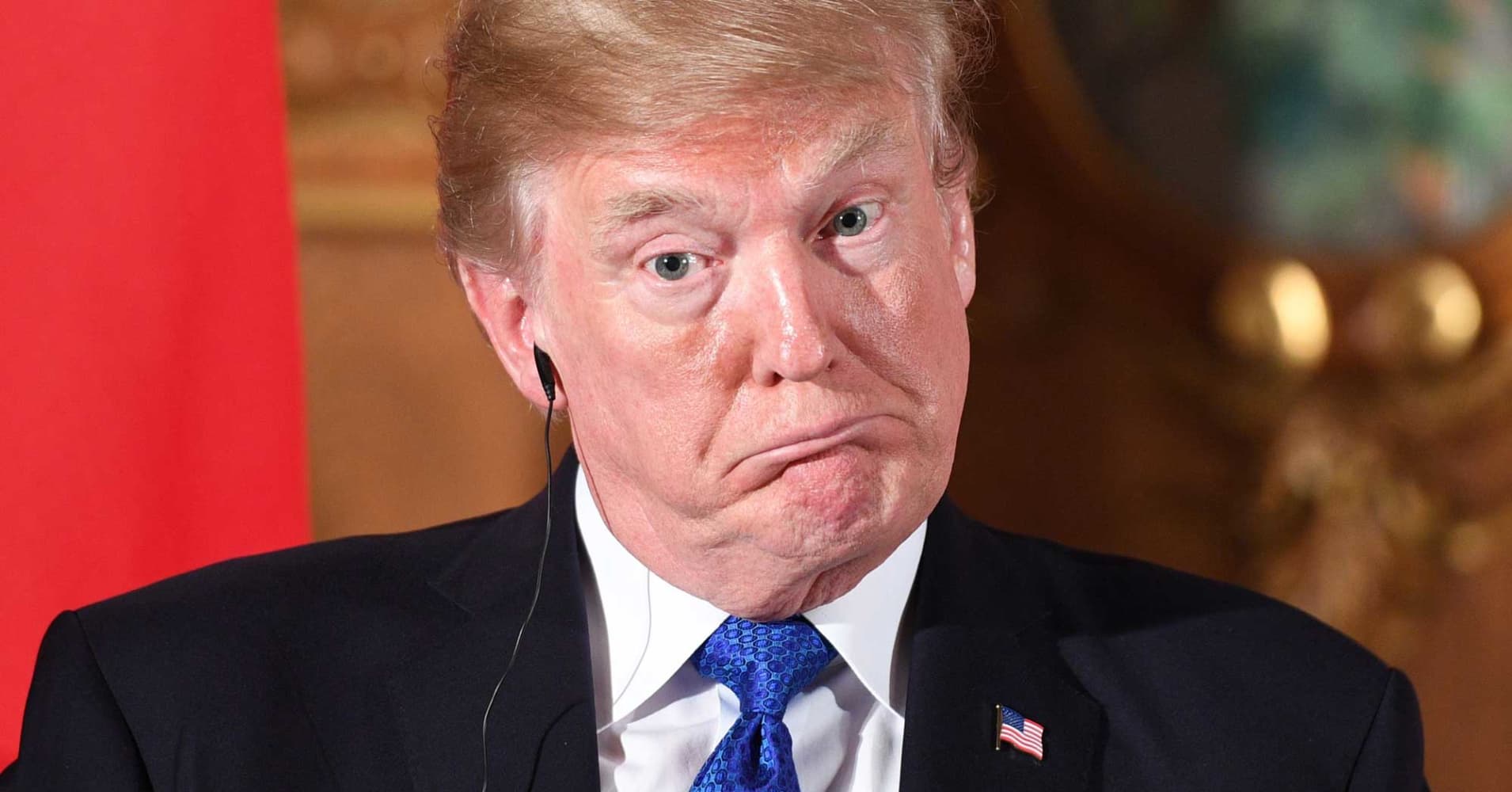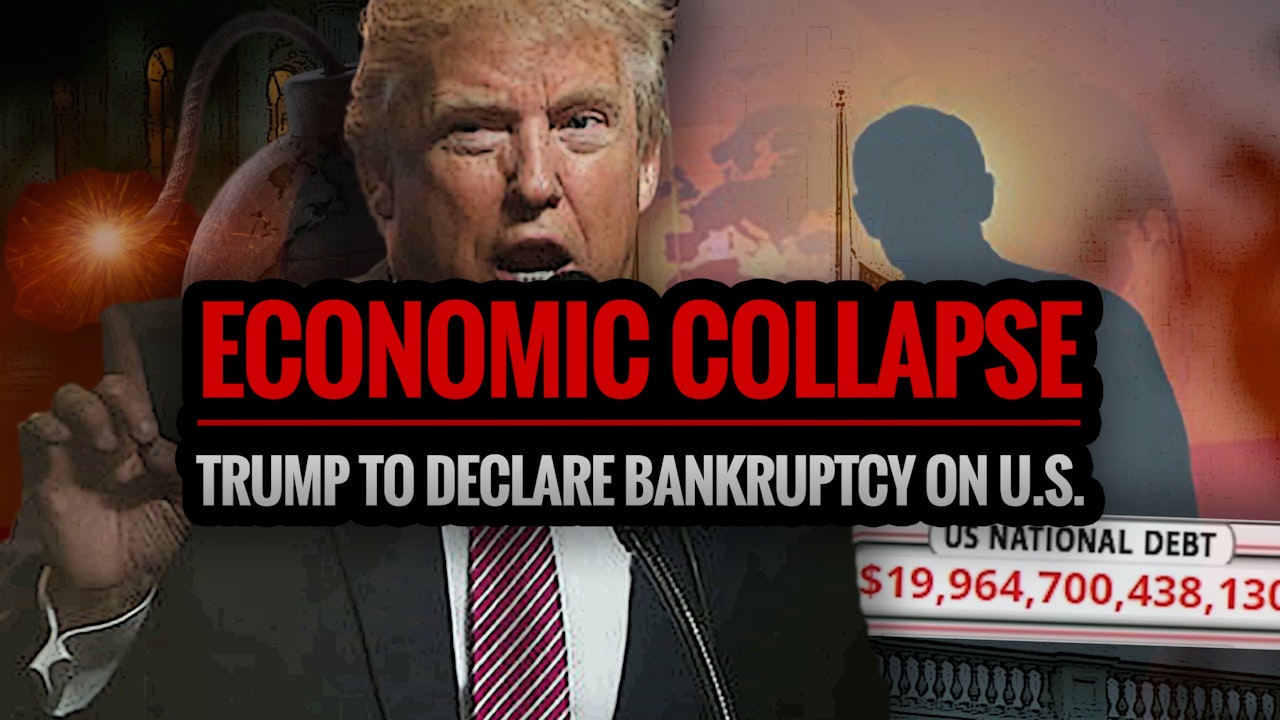
Fire, Pestilence and a Country at War With Itself: The Trump Presidency Is Over. A pandemic unabated, an economy in meltdown, cities in chaos over police killings and all our supposed leader does is tweet
Robert Reich / The Guardian UK
(June 2, 2020) — You’d be forgiven if you hadn’t noticed. His verbal bombshells are louder than ever, but Donald J Trump is no longer president of the United States.
By having no constructive response to any of the monumental crises now convulsing America, Trump has abdicated his office.
He is not governing. He’s golfing, watching cable TV and tweeting.
How has Trump responded to the widespread unrest following the murder in Minneapolis of George Floyd, a black man who died after a white police officer knelt on his neck for minutes as he was handcuffed on the ground?
Trump called the protesters “thugs” and threatened to have them shot. “When the looting starts, the shooting starts,” he tweeted, parroting a former Miami police chief whose words spurred race riots in the late 1960s.
On Saturday, he gloated about “the most vicious dogs, and most ominous weapons” awaiting protesters outside the White House, should they ever break through Secret Service lines.
Trump’s response to the last three ghastly months of mounting disease and death has been just as heedless. Since claiming Covid-19 was a “Democratic hoax” and muzzling public health officials, he has punted management of the coronavirus to the states.
Governors have had to find ventilators to keep patients alive and protective equipment for hospital and other essential workers who lack it, often bidding against each other. They have had to decide how, when and where to reopen their economies.
Trump has claimed “no responsibility at all” for testing and contact-tracing — the keys to containing the virus. His new “plan” places responsibility on states to do their own testing and contact-tracing.
Trump is also AWOL in the worst economic crisis since the Great Depression.
More than 41 million Americans are jobless. In the coming weeks, temporary eviction moratoriums are set to end in half of the states. One-fifth of Americans missed rent payments this month. Extra unemployment benefits are set to expire at the end of July.
What is Trump’s response? Like Herbert Hoover, who in 1930 said, “the worst is behind us” as thousands starved, Trump says the economy will improve and does nothing about the growing hardship. The Democratic-led House passed a $3 trilion relief package on 15 May. Mitch McConnell has recessed the Senate without taking action and Trump calls the bill “dead on arrival.”
What about other pressing issues a real president would be addressing? The House has passed nearly 400 bills this term, including measures to reduce climate change, enhance election security, require background checks on gun sales, reauthorize the Violence Against Women Act and reform campaign finance. All are languishing in McConnell’s inbox. Trump doesn’t seem to be aware of any of them.
There is nothing inherently wrong with golfing, watching television and tweeting. But if that’s pretty much all that a president does when the nation is engulfed in crises, he is not a president.
Trump’s tweets are no substitute for governing. They are mostly about getting even.
When he’s not fomenting violence against black protesters, he’s accusing a media personality of committing murder, retweeting slurs about a black female politician’s weight and the House speaker’s looks, conjuring up conspiracies against himself supposedly organized by Hillary Clinton and Barack Obama, and encouraging his followers to “liberate” their states from lockdown restrictions.
He tweets bogus threats that he has no power to carry out — withholding funds from states that expand absentee voting, “overruling” governors who don’t allow places of worship to reopen “right away,” and punishing Twitter for fact-checking him.
And he lies incessantly.
In reality, Donald Trump doesn’t run the government of the United States. He doesn’t manage anything. He doesn’t organize anyone. He doesn’t administer or oversee or supervise. He doesn’t read memos. He hates meetings. He has no patience for briefings. His White House is in perpetual chaos.
His advisers aren’t truth-tellers. They’re toadies, lackeys, sycophants and relatives.
Since moving into the Oval Office in January 2017, Trump hasn’t shown an ounce of interest in governing. He obsesses only about himself.
But it has taken the present set of crises to reveal the depths of his self-absorbed abdication — his utter contempt for his job, his total repudiation of his office.
Trump’s nonfeasance goes far beyond an absence of leadership or inattention to traditional norms and roles. In a time of national trauma, he has relinquished the core duties and responsibilities of the presidency.
He is no longer president. The sooner we stop treating him as if he were, the better.

CIA Veterans Who Monitored Crackdowns Abroad See Troubling Parallels in Trump’s Handling of Protests
Greg Miller / The Washington Post
(June 3, 2020) — The scenes have been disturbingly familiar to CIA analysts accustomed to monitoring scenes of societal unraveling abroad — the massing of protesters, the ensuing crackdowns and the awkwardly staged displays of strength by a leader determined to project authority.
In interviews and posts on social media in recent days, current and former US intelligence officials have expressed dismay at the similarity between events at home and the signs of decline or democratic regression they were trained to detect in other nations.
“I’ve seen this kind of violence,” said Gail Helt, a former CIA analyst responsible for tracking developments in China and Southeast Asia. “This is what autocrats do. This is what happens in countries before a collapse. It really does unnerve me.”
Helt, now a professor at King University in Tennessee, said the images of unrest in US cities, combined with President Trump’s incendiary statements, echo clashes she covered over a dozen years at the CIA tracking developments in China, Malaysia and elsewhere.
Other former CIA and national security officials rendered similarly troubled verdicts.
Marc Polymeropoulos, who formerly ran CIA operations in Europe and Asia, was among several former agency officials who recoiled at images of Trump hoisting a Bible in front of St. John’s Episcopal Church in Washington after authorities fired rubber bullets and tear gas to clear the president’s path of protesters.
“It reminded me of what I reported on for years in the third world,” Polymeropoulos said on Twitter. Referring to the despotic leaders of Iraq, Syria and Libya, he said: “Saddam. Bashar. Qaddafi. They all did this.”
The impression Trump created was only reinforced by others in the administration. Defense Secretary Mark T. Esper urged governors to “dominate the battlespace” surrounding protesters, as if describing US cities as a foreign war zone. Later, as military helicopters hovered menacingly over protesters, Gen. Mark A. Milley, chairman of the Joint Chiefs of Staff, toured the streets of the nation’s capital in his battle fatigue uniform.
“As a former CIA officer, I know this playbook,” Rep. Abigail Spanberger (D-Va.)said in a tweet. Before her election to Congress last year, she worked at the agency on issues including terrorism and nuclear proliferation.
One US intelligence official even ventured into downtown Washington on Monday evening, as if taking measure of the street-level mood in a foreign country.
“Things escalated quickly,” said the official, who spoke on the condition of anonymity, citing the sensitive nature of his job. He emphasized that he went as a concerned citizen, not in any official capacity. After seeing tear gas canisters underfoot, he said, he “knew it was time to go” and departed.
Former intelligence officials said the unrest and the administration’s militaristic response are among many measures of decay they would flag if writing assessments about the United States for another country’s intelligence service.
They cited the country’s struggle to contain the novel coronavirus, the president’s attempt to pressure Ukraine for political favors, his attacks on the news media and the increasingly polarized political climate as other signs of dysfunction.
Trump supporters have defended his handling of the unrest, and his trip across Lafayette Square as a display of the strength needed to restore order in dozens of cities where protests have led to looting, fires and violence.
Former Wisconsin governor Scott Walker (R) said it was “hard to imagine” any other president “having the guts to walk out of the White House like this.”
But there were also indications that senior members of the administration were uncomfortable with the president’s outing and eager to minimize their role in it.
A senior Pentagon official said Tuesday that neither Esper nor Milley knew when they set out to accompany Trump that police were about to charge through seemingly peaceful protesters or that they would play supporting roles in a photo op.
Even away from the cameras, Trump has assiduously cultivated the aura of a strongman. Earlier Monday, he had chided governors as “weak” for failing to employ adequate force in the face of mounting protests.
“If you don’t dominate, you’re wasting your time,” Trump said. He offered no words on how to ease tensions in crowds that have massed largely in anger over the death of George Floyd, an African American man who was killed while being pinned to the ground, a knee against his neck, by police in Minneapolis.
Brett McGurk, a former top US envoy to the Middle East who spent two years in the Trump administration, said the president’s words — recorded by participants and shared with news organizations — would only embolden the world’s autocrats and undermine US authority.
“The imagery of a head of state in a call with other governing officials saying, ‘Dominate the streets, dominate the battlespace’ — these are iconic images that will define America for some time,” said McGurk, who led US diplomatic efforts to counter the Islamic State terrorist group. “It makes it much more difficult for us to distinguish ourselves from other countries we are trying to contest” or influence, he said.
In recent years, US officials have urged restraint or denounced crackdowns against protesters or vulnerable groups in Russia, Iran, Turkey, Malaysia, Syria and other countries.
Even this week, Secretary of State Mike Pompeo lectured China about its efforts to prevent citizens of Hong Kong from holding a vigil to mark the anniversary of the Tiananmen Square protests.
“If there is any doubt about Beijing’s intent, it is to deny Hong Kongers a voice and a choice,” Pompeo said in a statement that was met with derision on Twitter because it coincided with crackdowns urged by Trump in the United States.
The seeming hypocrisy in the US position has not been lost on foreign targets of American pressure or criticism.
Ramzan Kadyrov, a Chechen leader who has faced US sanctions for alleged human rights abuses, said Tuesday that he was “watching with horror the situation in the United States, where the authorities are maliciously violating ordinary citizens’ rights,” according to reports from Moscow.
Posted in accordance with Title 17, Section 107, US Code, for noncommercial, educational purposes.